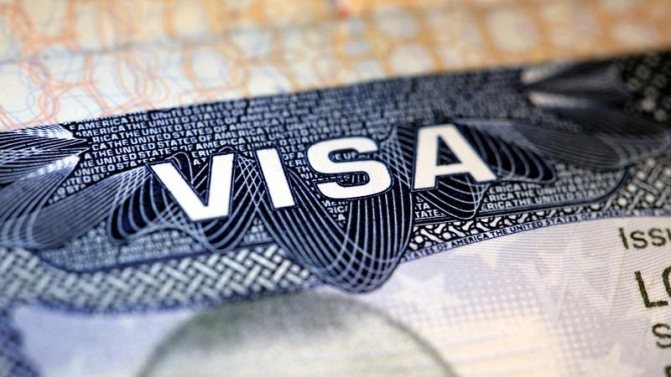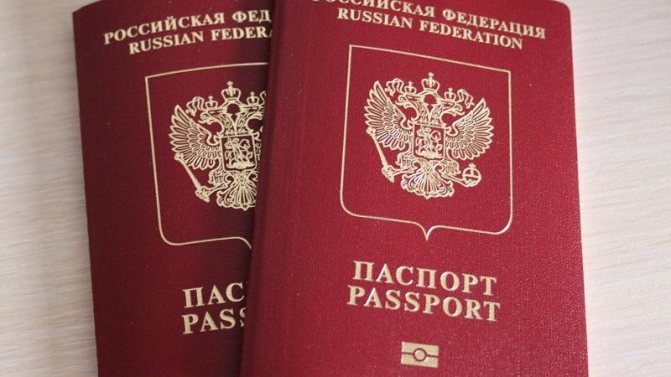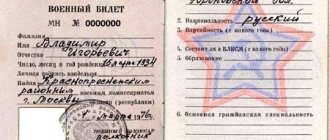A trip abroad today has ceased to be a pipe dream for the majority of our citizens. Vacations, studies, and employment abroad have become commonplace. However, not everyone manages to complete their planned trip. For those citizens of the Russian Federation who have a suspended sentence, traveling abroad may not take place. What does Russian legislation say about this and is it possible to correct the situation?
What does the legislation of the Russian Federation say?
Everything related to having a criminal record and the possibility of traveling outside Russia is clearly stipulated in the Criminal Code of the Russian Federation and Federal Law No. 114-FZ of August 15, 1996 “”.
The Criminal Code of the Russian Federation provides in a number of cases the possibility of replacing the actual serving of a sentence by a suspended sentence for those sentenced to a term of up to 8 years. Such a decision can be made by the court only after assessing all mitigating circumstances, the personality of the convicted person and the nature of the danger to society of the crime committed. In the event of a suspended sentence, the court sets a probationary period of 6 months to 5 years, depending on the type of punishment, as well as other types of punishment.
Paragraph 5 of the above article defines the fulfillment of duties, which include partial restrictions on the rights and freedoms of the convicted person: do not change the address of permanent residence and place of work without notifying the regulatory authorities. If you don’t have a job, find a job or go to school.
The state must exercise full control over the behavior of the probationer, and, if necessary, react by canceling or adding to the duties. Real control over such a person is possible only within the borders of the Russian Federation.
Law of the Russian Federation No. 114-FZ of August 15, 1996 (clause 4 of Article 15) temporarily restricts the right to travel for citizens of the Russian Federation in the event of a conviction, including a suspended one.
Art. 18 of the same law prescribes the confiscation of the international passport of a convicted citizen of the Russian Federation and its transfer for storage to the government agency that issued it.
Information about persons who are prohibited from traveling is entered into the database of the Information Center of the Main Internal Affairs Directorate of the Russian Federation and transmitted to transport companies and the Border Service of the Russian Federation.
Removal of temporary restrictions on traveling abroad
According to the Administrative Regulations of the Ministry of Foreign Affairs for the registration and issuance of foreign passports (Order of the Ministry of Foreign Affairs of the Russian Federation No. 4271 dated March 29, 2021), if the fact of restriction of the right to travel abroad is revealed, the applicant is given a notice of refusal to issue an exit permit (Appendix No. 19 to Order 4271).
GDE Error: Error loading file - Turn off error checking if necessary (404:Not Found)
The notification contains information about the basis for the restriction and about the authority that made this decision. The restriction period is also stipulated here, after which the applicant receives the right to leave.
Persons who have been convicted, regardless of whether they have committed serious or minor offenses, are considered to have a criminal record until the conviction is expunged or removed in accordance with the established procedure. Thus, the temporary ban on traveling abroad will be lifted in two cases:
- upon expiration of the established sentence, the criminal record is expunged;
- as a result of a criminal record being vacated.
Removal of restrictions when expunging a criminal record
The first option for lifting a temporary restriction on rights is associated with the expiration of the sentence, which was established by a court decision - that is, the citizen has served the entire prescribed period. In this case, the criminal record is automatically expunged (provided there are no new offenses).
Part 3 Art. 86 of the Criminal Code of the Russian Federation in relation to conditionally convicted citizens of the Russian Federation establishes the date of expiration of the probationary period at the moment of expiration of the criminal record. From this moment on, the citizen is considered to have no criminal record, and, according to Part 6 of Art. 86 of the Criminal Code of the Russian Federation, temporary loss of rights associated with a criminal record ceases to apply; including .
Early expungement of a criminal record
It is possible to cancel the negative legal consequences associated with a criminal record early - before the expiration of the probationary period. The legislation provides for several options. In the first case, the expungement of a criminal record can be realized when the conditionally convicted person:
- realized his guilt and proved correction by his behavior;
- compensated for the damage caused to the injured party;
- served at least half of the probationary period.
A petition from the convicted person is not required. The submission to the court will be prepared by an inspector from the regulatory authority. After considering the case, the court may make a decision to expunge the criminal record (Part 1 of Article 73 of the Criminal Code of the Russian Federation).
In the second case, the expungement of a criminal record can occur during an amnesty (Article 84 of the Criminal Code of the Russian Federation), when the article under which the citizen was convicted is excluded from the Criminal Code of the Russian Federation, or after the charges are dropped by a decision of the court of first instance or appeal.
Finally, the third option is a pardon by the President of the Russian Federation (Article 85 of the Criminal Code). In this case, the initiator of filing the petition is the person against whom a sentence has been passed or who has already served his sentence.
An act of pardon is a sufficient basis for early expungement of a criminal record.
Interesting fact. Every year in the Russian Federation the number of those pardoned by the President decreases. If in 1999 more than 7.8 thousand convicts were pardoned, then in 2021 - 5, in 2021 and 2021. - 2. If in the 1990s, an application for pardon had to go through only one pardon commission under the President of the Russian Federation, then currently there are already five such authorities.
Entry ban due to criminal record
When deciding on the entry of foreign citizens into Russia, the following situation sometimes arises: a foreign citizen has an entry ban due to a criminal record. There are two ways to solve this problem:
- the criminal record of a foreign citizen will be removed after serving the sentence and only then the entry ban will be lifted;
- filing an application to lift the ban without expunging the criminal record.
Our practice shows that it is better to do everything in stages. First, submit an application to lift the ban, and if it is not satisfied, then remove the criminal record, and only then apply again with a similar application, but on other grounds.
Our podcast “How to lift the ban on entry into the Russian Federation?” →
You can follow us on social networks and contact us with any questions you may have.
Our video instructions on how to correctly draw up an application and claim for lifting the entry ban
In this article we will look at how to solve the problem if a foreign citizen has a criminal record, as well as the legal consequences of a criminal record under Russian law, both in general and the consequences relating to foreign citizens.
To understand what such a criminal record is, it is necessary to start with the territorial effect of the Criminal Code of the Russian Federation. The criminal legislation of the Russian Federation applies to:
- the entire territory of the Russian Federation;
- territorial sea and airspace of the Russian Federation;
- continental shelf;
- exclusive economic zone of the Russian Federation.
When a person commits a crime on the territory of the Russian Federation and a court pronounces a guilty verdict against him, such a person is brought to criminal liability. Criminal liability itself consists of three elements:
- negative assessment of the person who committed the crime by the state;
- assignment and serving of punishment;
- After serving the sentence, a stage such as a criminal record begins.
The general consequences of having a criminal record are the following:
- restriction of the right to education; in some educational institutions, a convicted person will not be able to study;
- restriction of voting rights;
- restrictions related to military service;
- restrictions on the choice of place of work (a person with a criminal record will not be able to get a job at enterprises, popularly called “security” ones). There are also consequences not provided for by law, for example, with a criminal record, it is unlikely that you will be able to get a job at a fairly large enterprise with a highly professional security service.
As for the consequences relating specifically to foreign citizens, if a foreign citizen has a criminal record, the following consequences may follow:
- if there is a need to enter the Russian Federation, but the criminal record has not been expunged, entry will be prohibited; At the same time, it is necessary to keep in mind that entry is prohibited only when committing an intentional crime (by intent is meant the commission of a crime by a person when he was aware of the social danger of his actions (the person was not insane, there was also no negligence), foresaw the onset of the consequences of the crime and wanted them to occur, or the consequences were indifferent).
- The Ministry of Internal Affairs does not issue a temporary residence permit if there is a conviction for serious and especially serious crimes. It is logical that you will also not receive a residence permit or passport of the Russian Federation while this ban is in effect.
How should a foreign citizen decide to enter the Russian Federation if he has a criminal record? Let's consider two options:
- wait until the criminal record is expunged. Sometimes you have to wait a very long time, so it is worth keeping in mind that a criminal record can be expunged ahead of schedule through the court if the person who served the sentence has a positive character and has compensated for the damage caused. After a criminal record has been cleared, you must contact the migration authority with confirmation of the absence of a criminal record (a judicial act or a certificate from the Ministry of Internal Affairs of the Russian Federation).
- in the second case, we will consider an entry ban due to a criminal record and its removal until the criminal record is expunged. If there is a need to enter the Russian Federation, but the criminal record has not been expunged, then it is necessary to either contact the migration authority to lift the entry ban due to a criminal record, or appeal the refusal to enter the Russian Federation without expunging the criminal record.
In both cases, both when writing an application to the migration authority and when appealing to the court the refusal to lift the ban, it is necessary to focus on the following points:
- the absence of a real threat to Russia and its population from a foreign citizen;
- availability of work in the Russian Federation, or a potential employer;
- the presence of relatives in the Russian Federation, if there are minor children with Russian citizenship, must also be indicated;
- refer to excessive restrictions on the rights and freedoms of a foreign citizen;
- attach positive characteristics.
The above is only an approximate list of circumstances that need to be indicated; in each specific situation, circumstances and evidence may be different.
Lifting bans on entry into Russia due to an outstanding criminal record is a rather complex category of cases, since both migration legislation and criminal law intersect here, so it is better to entrust the handling of such cases to a professional lawyer and migration lawyer.
Certificate for those who have served a criminal record: how to get it
In some situations (when applying for a job, when applying for a visa), a police clearance certificate may be required. Such a document is issued free of charge by the territorial bodies of the Ministry of Internal Affairs of the Russian Federation.
For assistance please contact:
- to the territorial body of the Ministry of Internal Affairs in person or through an authorized person;
- at the MFC (please note that this service is not available in all regions of the Russian Federation);
- through your personal account on the portal.
To obtain a certificate, you must write an application and also attach a photocopy of your Russian civil passport. The execution time for this public service is within a month from the date of application.
What difficulties may arise with an expunged criminal record?
Registration of a foreign passport for citizens who have an expunged criminal record follows the same procedure as for other persons of Russian citizenship. A certificate of the presence/absence of a criminal record is not among the documents that are required for issuing a foreign passport, as follows from the Administrative Regulations for the provision of services for the registration and issuance of foreign passports, approved by Order of the Federal Migration Service No. 320 of October 15. 2021.
All that is required of the applicant is to fill out the application form correctly and truthfully. The migration service will receive the information it needs itself by sending a corresponding request to the Information Center of the Main Migration Service of the Ministry of Internal Affairs. Therefore, citizens with an expunged criminal record should not experience any additional difficulties or problems when obtaining a foreign passport.
A different situation may arise with obtaining a visa. When surveying at consulates, it is necessary to indicate all criminal convictions that were in the person’s biography, regardless of the statute of limitations and repayment. You should be prepared for the fact that such a past is a negative point, but not critical.
An attempt to hide this fact will be received much worse: if the deception is discovered, the result will be a refusal of a visa and additional sanctions, for example, a lifetime ban on entry into the United States or Australia. You should simply try to prove to the migration authorities that the mistakes of your youth have been taken into account and that they are now a model citizen. This is where a certificate of expungement of a suspended criminal record can come in handy, which must be translated into a foreign language and certified by a notary.
Interesting fact. Sometimes having a criminal record, or even several, can be a compelling argument for obtaining refugee status. This will become possible if the applicant manages to convince the migration authorities that the criminal record is the result of political, racial and other persecution.
Restriction on probation
The rules established by law prohibit persons with an outstanding criminal record from traveling abroad. But as soon as it is lifted, the border opens for former convicts. However, there is one exception to this law. A conditionally convicted person will be able to travel abroad if a relative in another country becomes seriously ill or dies. True, for this he needs to send a corresponding petition to the court. In order for the court to make a positive decision, documentary evidence will be required that the convicted person has family ties with a person located abroad.
An attempt to cross the border of the Russian Federation by conditionally convicted persons: possible consequences
An outstanding criminal record and traveling abroad are incompatible. According to clause 32 of the Administrative Regulations of the FSB of the Russian Federation for the implementation of border control (Order of the FSB of the Russian Federation No. 562 dated November 8, 2021), persons who are legally prohibited from leaving the territory of Russia are not subject to passage across the state border. If they try to pass passport and border control, they will be identified and brought to administrative and criminal liability.

The following may be applied to the violator:
- Art. 322 of the Criminal Code of the Russian Federation on illegal crossing of the border of the Russian Federation, since such a person cannot obtain proper permission to leave. Punishment - up to 200 thousand rubles. or forced labor for up to 2 years. If such an action is committed by a group of people or with the use of violence - imprisonment for up to 6 years;
- Art. 18.1. Code of Administrative Offenses of the Russian Federation on violation of the rules for crossing the state border of the Russian Federation. Punishment - from 2 to 5 thousand rubles.
In the event of a serious illness or death of a close relative abroad, a suspended sentenced person with an outstanding criminal record may apply for permission to leave for a certain period. The petition must disclose the reasons for the need to urgently travel abroad and attach several supporting documents to it: a certificate of death, illness, and family ties.
This situation is quite controversial and is not provided for by the Administrative Regulations: removing information about “travel restricted” persons or removing a ban on travel from the database of the Information Center of the Ministry of Internal Affairs is extremely difficult and burdensome. Therefore, in each specific case the decision can be either positive or negative.
Is it possible to bypass the system?
Of course, there are exceptions to all rules , and we will consider those options when you can safely leave the Russian border even with a criminal record:
- The presence of deceased or seriously ill relatives on the other side of the world is a good reason for traveling outside the borders of your native country. To do this, you need to provide a certificate to prove that trouble really happened to your loved one. Typically government agencies are loyal in such situations.
- The second method is more tedious, but if you do not have any unpleasant situations with your family, we recommend that you use it. There are no strict state borders between Russia and Belarus; you can get there without any special travel documents. The point is that you can get to Belarus and from this territory buy a ticket to another country . You can go back straight to Russia, because they cannot not let you into your native country. Why does this option work? Because Russia and Belarus do not have a common register of all convicted persons, so in Belarus they will not be able to find out whether you have been convicted or not.

Can a suspended prisoner travel abroad? In this case, is it necessary to carry out such frauds in order to leave? Since 2009 - necessary. Previously, a suspended sentence calmly allowed people to leave the borders of the Russian Federation, but in 2009 changes came. Our authorities decided that being abroad of the Russian Federation interferes with control over the actions and deeds of a conditionally convicted person. Therefore, traveling abroad with a suspended sentence is also possible only under the above conditions .
Good to know:
Russians do not need a passport or a visa to travel to Belarus
List of countries with visa-free regime with Belarus
Let's sum it up
The court's suspended sentence results in a temporary restriction of rights, including the right to travel outside the Russian Federation. Until the suspended conviction is expunged, all attempts to travel outside of Russia, both to visa and visa-free countries, will be considered illegal. After expunging the criminal record, all rights, including obtaining a foreign passport and traveling abroad, will be returned.
Despite the European Union's criticism of the European Union's ban on traveling abroad as a violation of human rights, the situation in 2021 is likely to remain the same.
Obtaining documents for travel with a criminal record
We found out that one of the fates of a convicted person is limited travel abroad , but is it possible to obtain a foreign passport or visa document? Will they give you a visa if you have a criminal record? In fact, getting documents is much easier than moving outside the Russian Federation, but there are some nuances here too.
Of course, if you are serving time in custody, you will not be able to obtain a document to travel. But if your sentence has already been served and your criminal record is still present, then there will actually be no problems.
Visa
Let's figure out whether it is possible to get a visa with a criminal record. If it is quite easy to obtain a foreign passport, then the situation is completely different with a visa . In general, it all depends on the specific state you want to visit and the principles in it.
Attention! Most countries have a negative attitude towards the presence of at least some kind of judicial history behind you, even if you committed a minor offense 10 years ago.
But what is an obstacle to visiting one state is an empty phrase for another. A regular tourist visa does not even require a certificate of absence/criminal record , but if you need a long-term visa (more than 180 days), then they are taken more seriously, and a certificate is required in this case.
Do you get Schengen with a criminal record? Contrary to all the rumors, our answer will be positive: if the visa is a tourist one, again no one will require a certificate from you . But why do visa center employees answer the question of whether it is possible to get Schengen with a criminal record in the negative?
The point is that visa centers also have their own sources of verification, so they can also identify a criminal record, then there is a high chance of getting a refusal. Therefore, whether a Schengen visa and a criminal record will go separately or neutralize each other is an ambiguous question, it all depends on the specific case.

International passport
Do they issue a passport with a criminal record? The legislation of the Russian Federation states that a foreign passport cannot be obtained until the sentence is served . If you rely on these words, then even reading through the lines, there is no hint that a person released from custody or even not staying there cannot obtain a foreign passport. Therefore, to the question of whether it is possible to obtain a foreign passport with a criminal record, the answer is yes, and definitely, a criminal record in this regard is not a hindrance.
The procedure itself remains standard, no different, but there are several nuances. Firstly, when receiving a biometric passport, be sure to note the article and the number of years of your criminal record .
There is no point in keeping information secret, since FMS employees will find out all the details anyway. If you receive an old-style passport, then there is no such column in the application form, which can bring you moral relief. In this case, even questions about whether they will give you a foreign passport if you have a criminal record should not arise.
Also, in addition to standard documents, it is necessary to take a certificate from the Department of Internal Affairs regarding the release and a certificate of the court decision of the judge . Provide documents to the Federal Migration Service of the Russian Federation at your place of residence.
It can be useful:
Do Russians need a visa to Bulgaria and how to apply for it?
Do I need a visa to Montenegro when entering for 30 days?
Do Russian citizens need a visa to Cyprus and how to apply for it?







